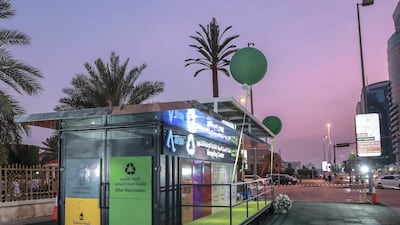A person buys a bottle of water, drinks it and throws the plastic away.
The bottle will take hundreds of years to degrade, polluting the earth, endangering our health and imperiling wildlife.
But what if there was another way? A path that cut single-use plastics, ended mindless consumption and tackled climate change. Enter the circular economy – a fresh way of thinking that promotes reuse, repair and recycling and even creates jobs. A World Economic Forum report from a few years ago even claimed it could generate 100,000 new jobs within five years.
Lofty goals, then. But the circular economy is centre stage at the moment in Finland. The three-day World Circular Economy Forum has brought together more than 2,000 green thinkers from across the globe.
“We are trying to change society,” said Hannele Pokka from the Finnish Ministry of Environment. “In the circular economy nothing is wasted. But to do this many things must change.”
The choice of Finland as hosts is no accident. It was the Finns who in 2016 published the world’s first national road map to a circular economy. Take the country’s forestry industry – a crucial sector employing tens of thousands of people. Effluent from its many paper mills once polluted Finland’s lakes, but now practically everything is reused.
Pine oil, once a wasted by-product, is now repurposed to make biofuel. Authorities have also managed to cut the 1,500 landfill sites the country had a few years ago to a few dozen through recycling and incinerating waste to generate power.
“Landfill as a term is going out of fashion,” said Ms Pokka. “We won’t need landfills at all within a few years.”
But it is not all rosy – Finland uses a lot of coal for heating. And individual households have much more to do to increase rates of recycling.
These challenges are relevant closer to home and efforts in the UAE to promote the circular economy are increasing. The UAE in April signed up to the World Economic Forum in the Middle East and North Africa’s Scale 360 initiative, which aims to shift countries towards a circular economy.
“We seek to promote Scale 360 … to ensure the conservation of resources, greater reliance on clean energy, the application of sustainable development standards and to create future opportunities for the youth,” said Thani Al Zeyoudi, Minister of Climate Change and Environment.
Just last year Abu Dhabi Municipality installed dedicated recycling depots across the city, while consumers are demanding more from business. Some hotels have now banned single use plastics, while a number of shops are encouraging customers to use refill stations for goods such as olive oil and pasta.
Bee'ah, the environmental management company based in Sharjah, has also been advocating the circular economy for some time. Writing in The National last year, its chief executive Khaled Al Huraimel said waste needed to be diverted from landfill and recycled. He also called for public awareness campaigns and more renewable energy.
“Our experience suggests that a willingness to adopt more sustainable ways of living already exists within the general population,” said Mr Al Huraimel. “It is therefore up to us and others in a similar position to harness and nurture that desire to do what is right for the environment, and ensure we convert it into positive action.”
Only a few months ago, it was suggested that GCC cities could save $138 billion (Dh507 billion) and 148 million tonnes of C02 emissions between 2020 and 2030 through the circular economy.
Many countries, then, have only just started on the path to a circular economy but the philosophy of reduce, reuse and recycle is a hard one to argue with.
“We have a lot to do,” said Ms Pokka. “But we are optimistic we can do it.”


